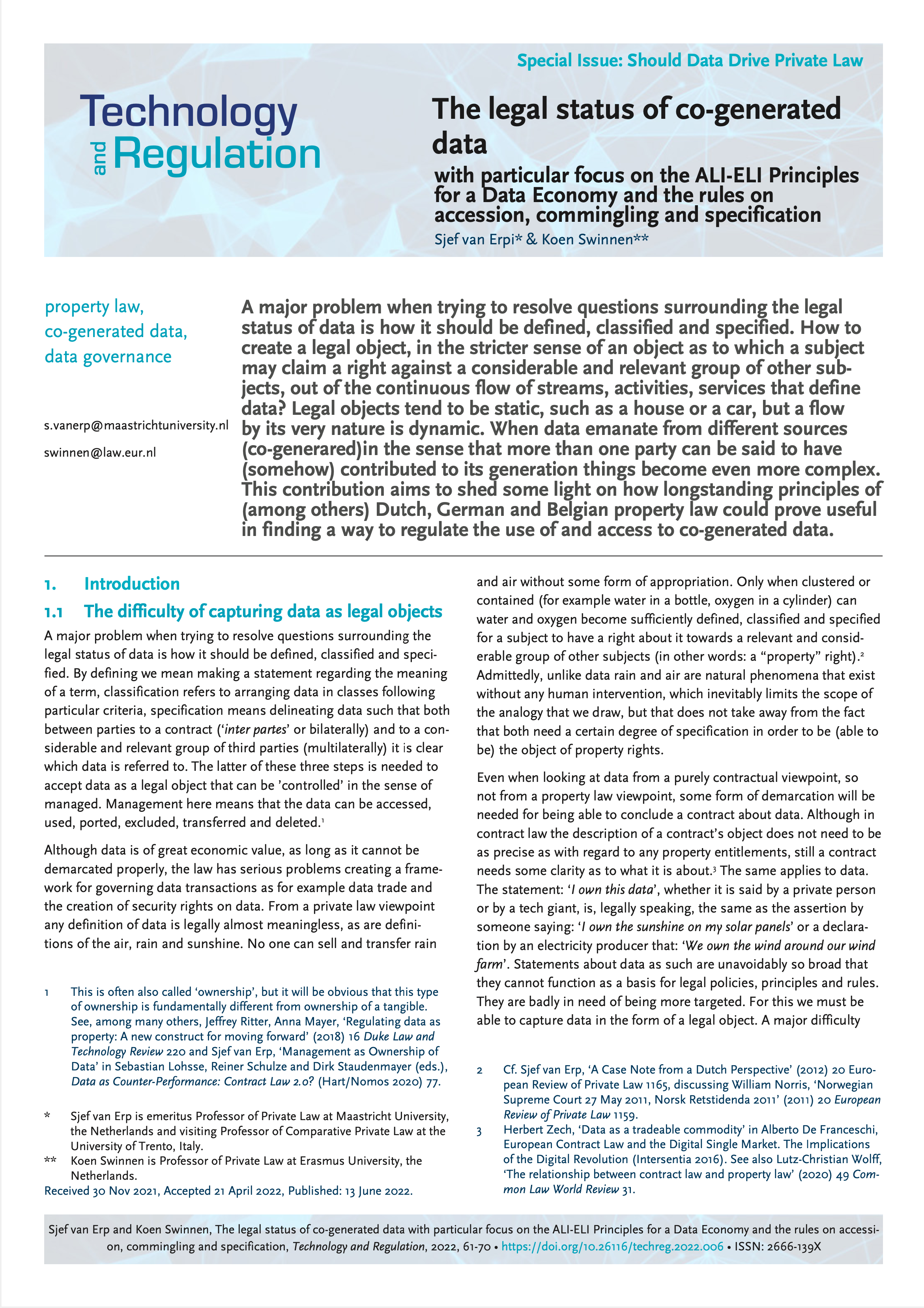The legal status of co-generated data
with particular focus on the ALI-ELI Principles for a Data Economy and the rules on accession, commingling and specification
DOI:
https://doi.org/10.26116/techreg.2022.006Keywords:
property law, co-generated data, data governanceAbstract
A major problem when trying to resolve questions surrounding the legal status of data is how they should be defined, classified and specified. By defining we mean making a statement regarding the meaning of a term, classification refers to arranging data in classes following particular criteria, specification means delineating data such that both between parties to a contract (‘inter partes’ or bilaterally) and to a considerable and relevant group of third parties (multilaterally) it is clear which data are referred to. Most data cannot be captured as easily as a block on a blockchain or data on your USB stick, because they are in constant motion. How to create a legal object, in the stricter sense of an object as to which a subject may claim a right against a considerable and relevant group of other subjects, out of this continuous flow of streams, activities, services? Legal objects tend to be static, such as a house or a car, but a flow by its very nature is dynamic. Do we not need a re-thinking of what can be a legal object given that the number of such flows is ever growing? What does the dynamic nature of such objects mean for the entitlement to any economic benefits? These are the questions we face when looking at data more generally. However, even more questions arise, in particular in terms of regulating the use of and access to the data, when data emanate from different sources in the sense that more than one party can be said to have (somehow) contributed to their generation, in other words: co-generated data. This contribution aims to shed some light on how longstanding principles of (among others) Dutch, German and Belgian property law could prove useful in finding a way to regulate the use of and access to co-generated data. These property law principles are in place, and have been in place for a very long time, to solve the ownership issue that arises when, as is the case with co-generated data, more than one party can be said to have somehow contributed to the creation of something, that something in the case of traditional property law being a tangible.Downloads
Download data is not yet available.

Downloads
Published
13-06-2022
How to Cite
van Erp, S., & Swinnen, K. (2022). The legal status of co-generated data: with particular focus on the ALI-ELI Principles for a Data Economy and the rules on accession, commingling and specification. Technology and Regulation, 2022, 61–70. https://doi.org/10.26116/techreg.2022.006
Issue
Section
Special Issue: Should Data Drive Private Law?
License
Copyright (c) 2022 Sjef van Erp, Koen Swinnen

This work is licensed under a Creative Commons Attribution-NonCommercial-NoDerivatives 4.0 International License.
Submissions are published under a Creative Commons BY-NC-ND license.’




